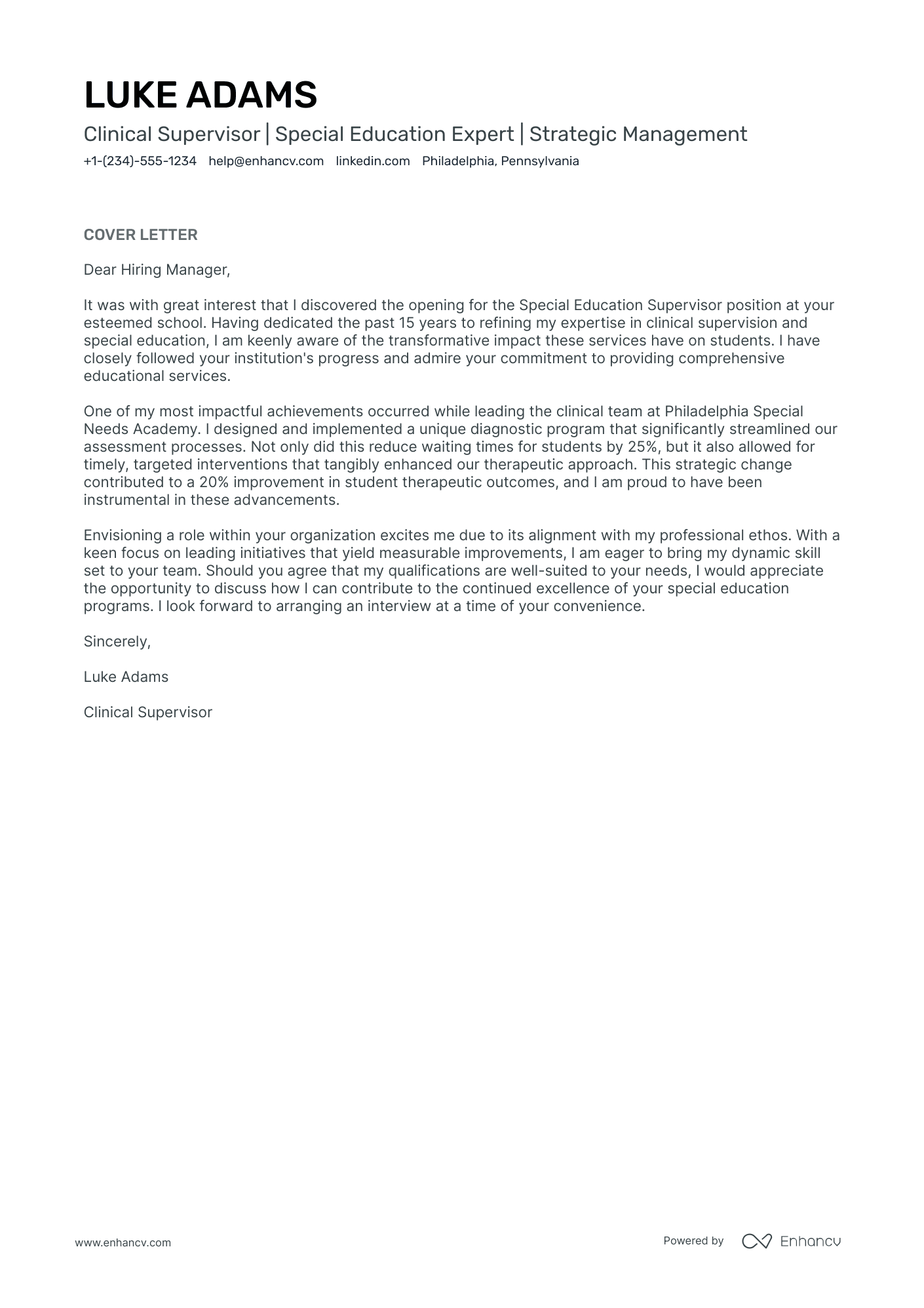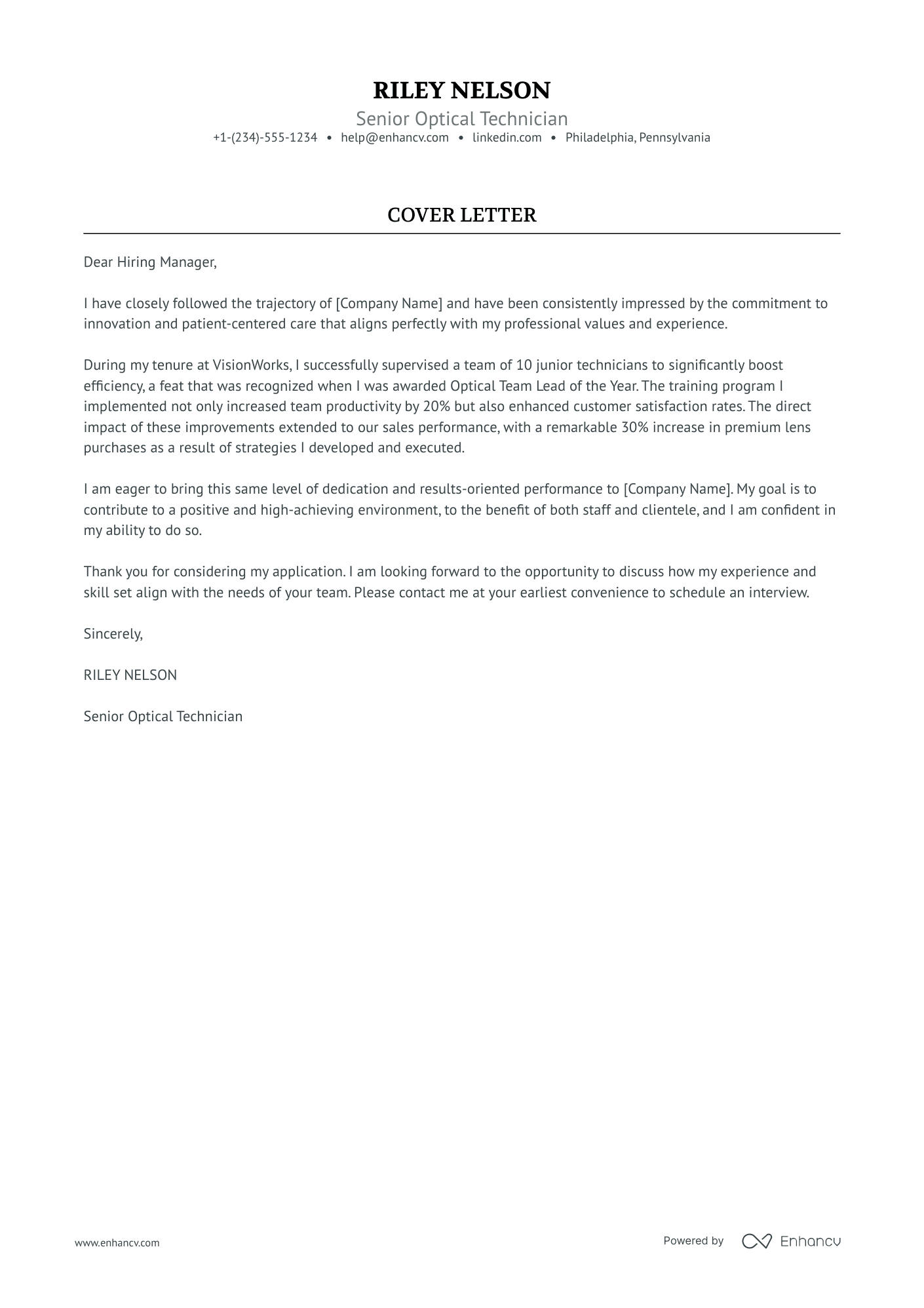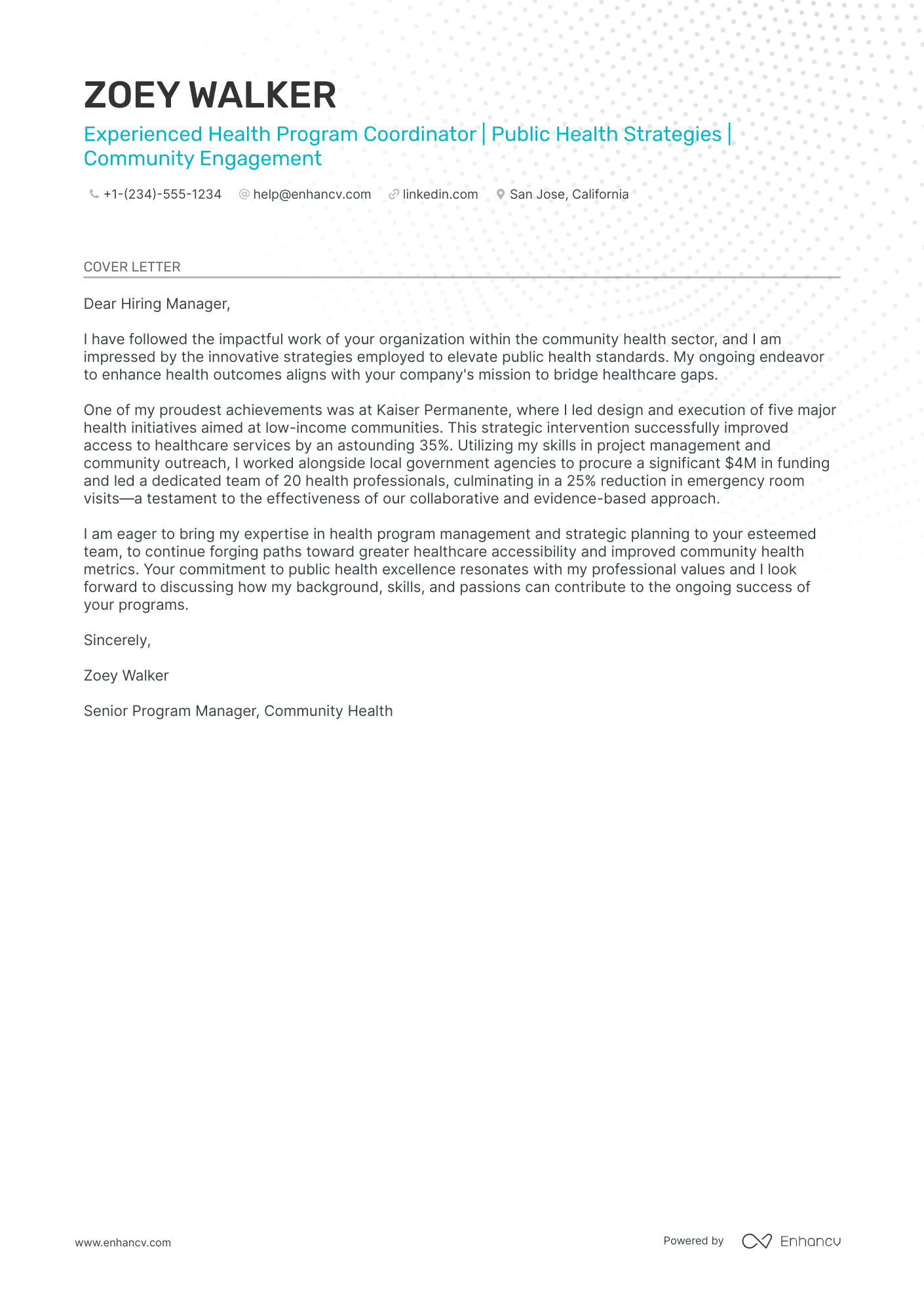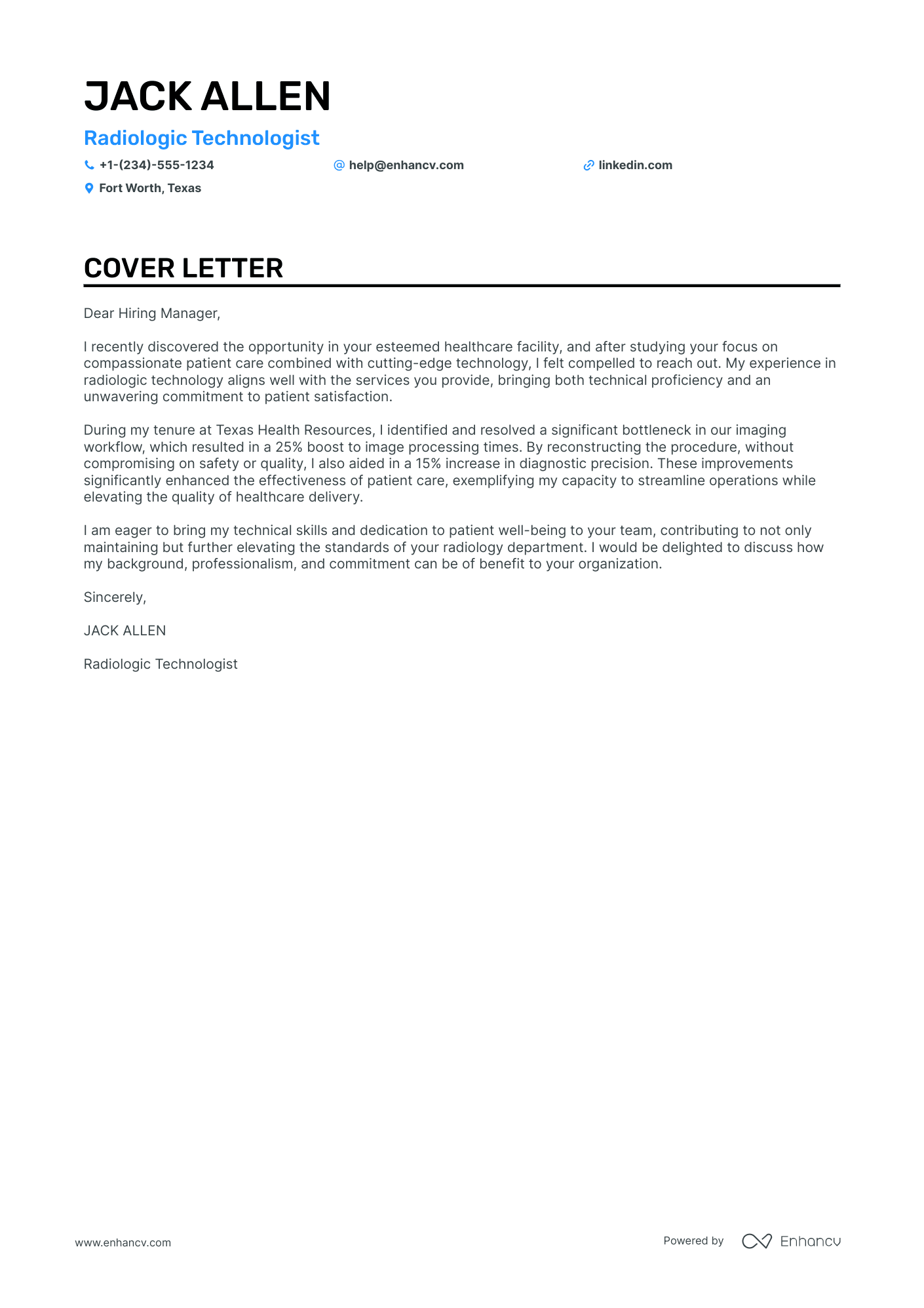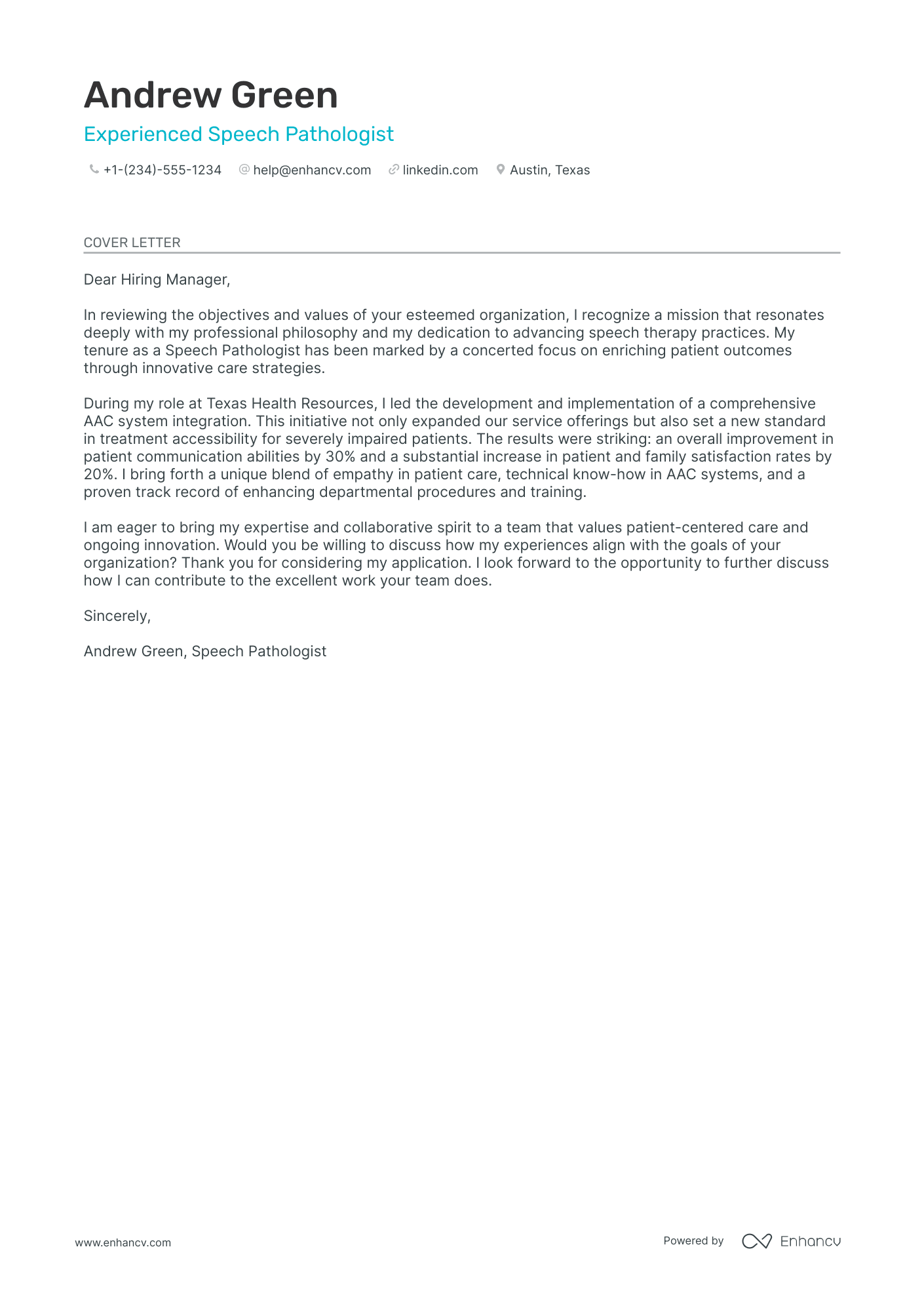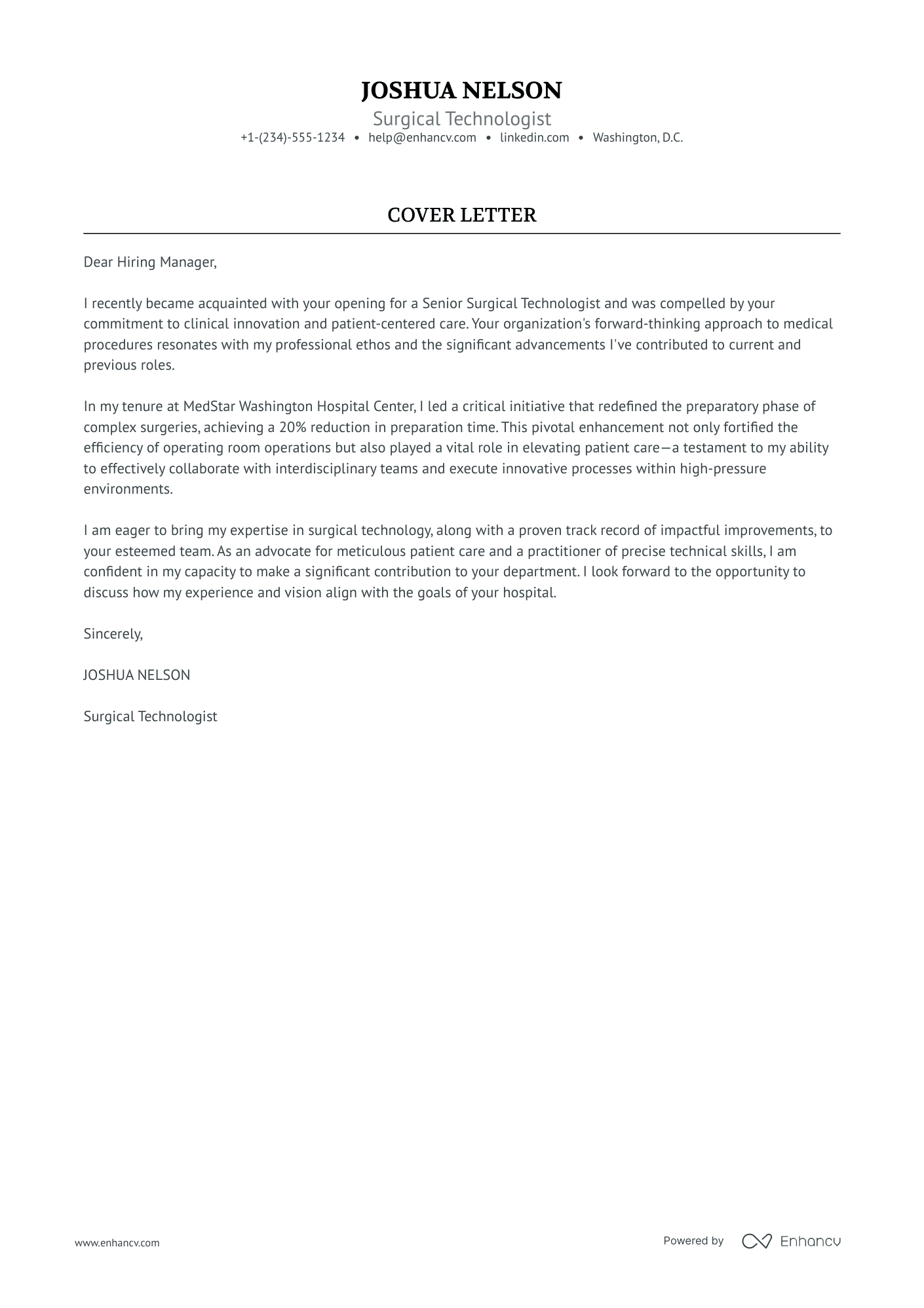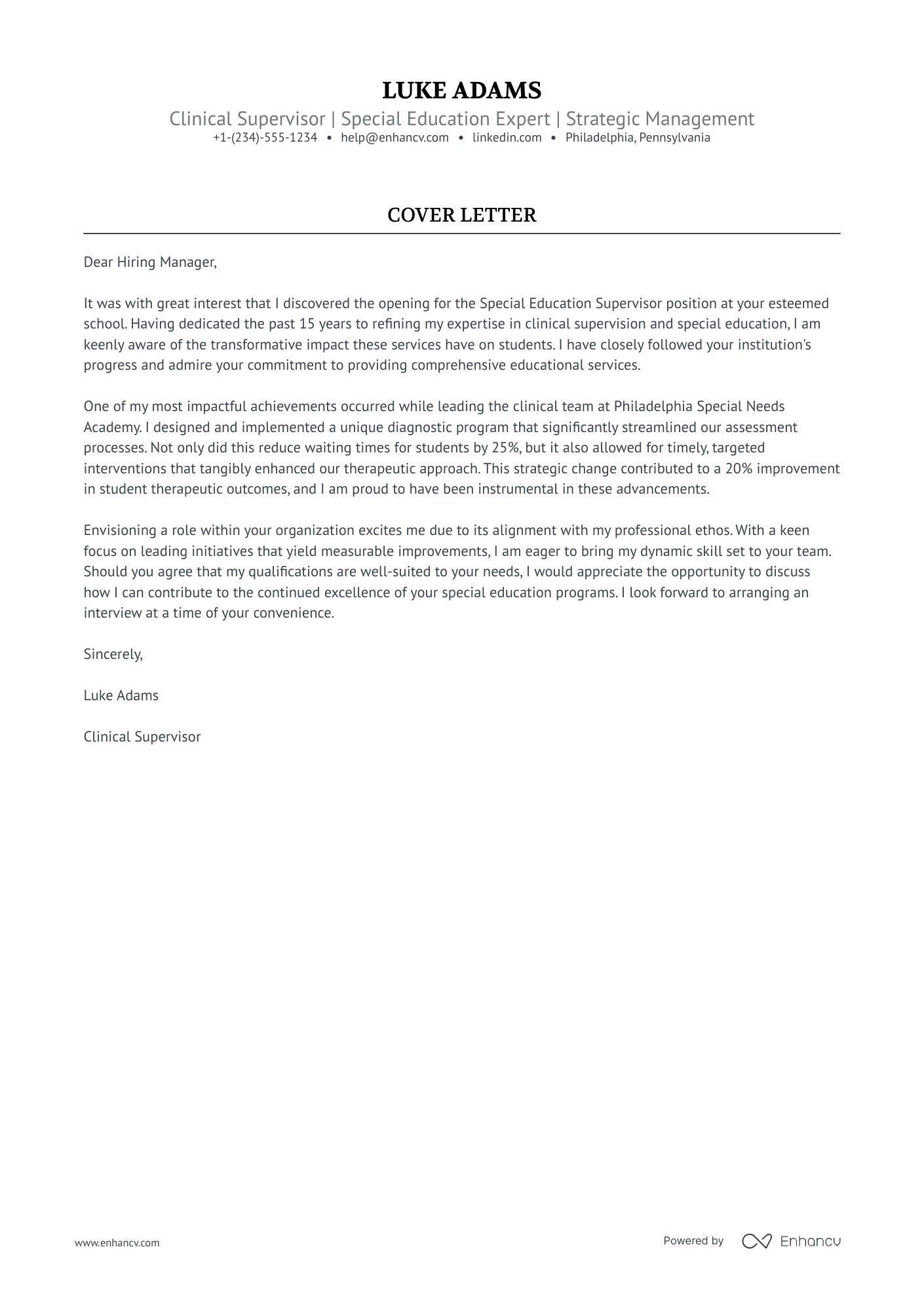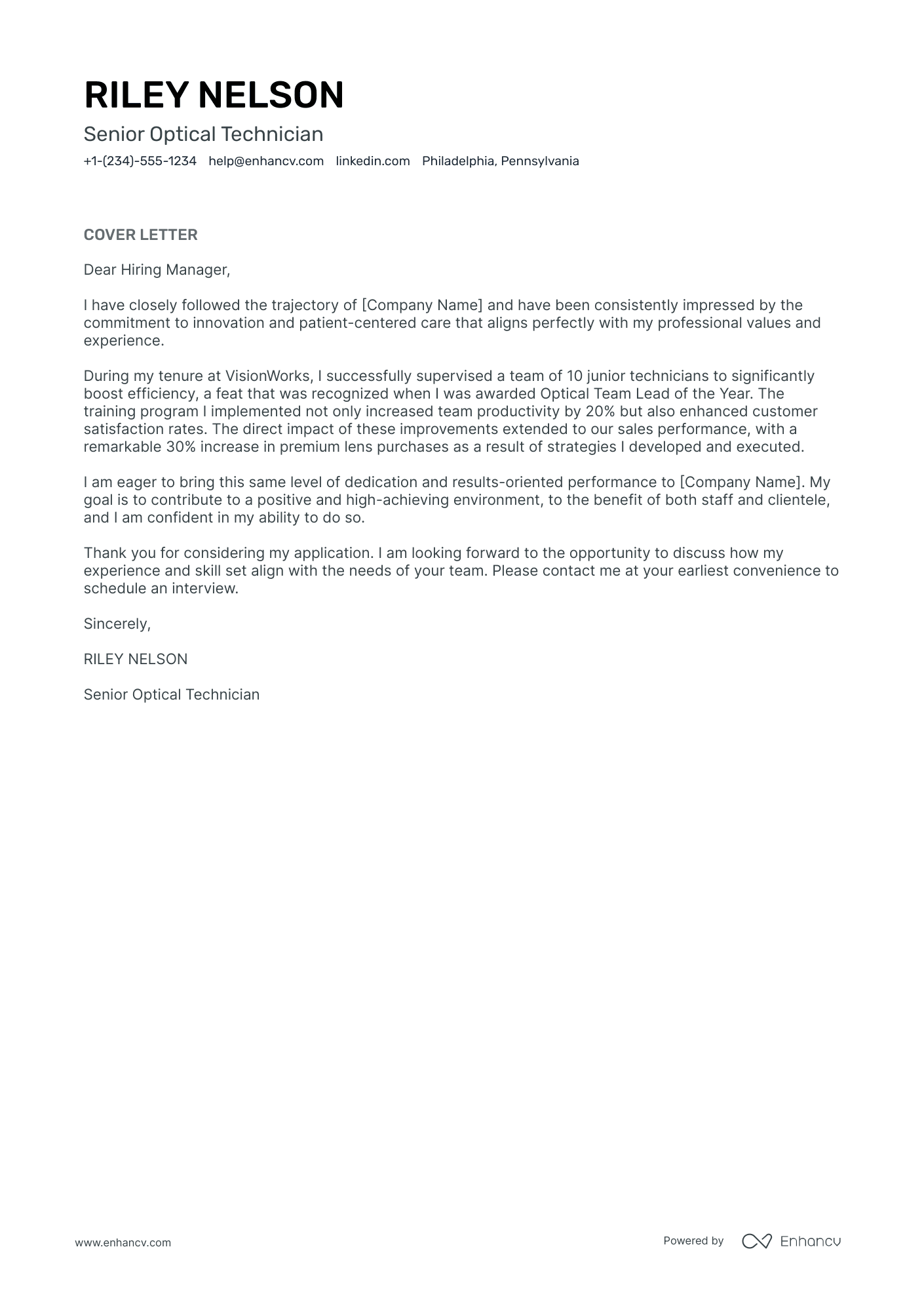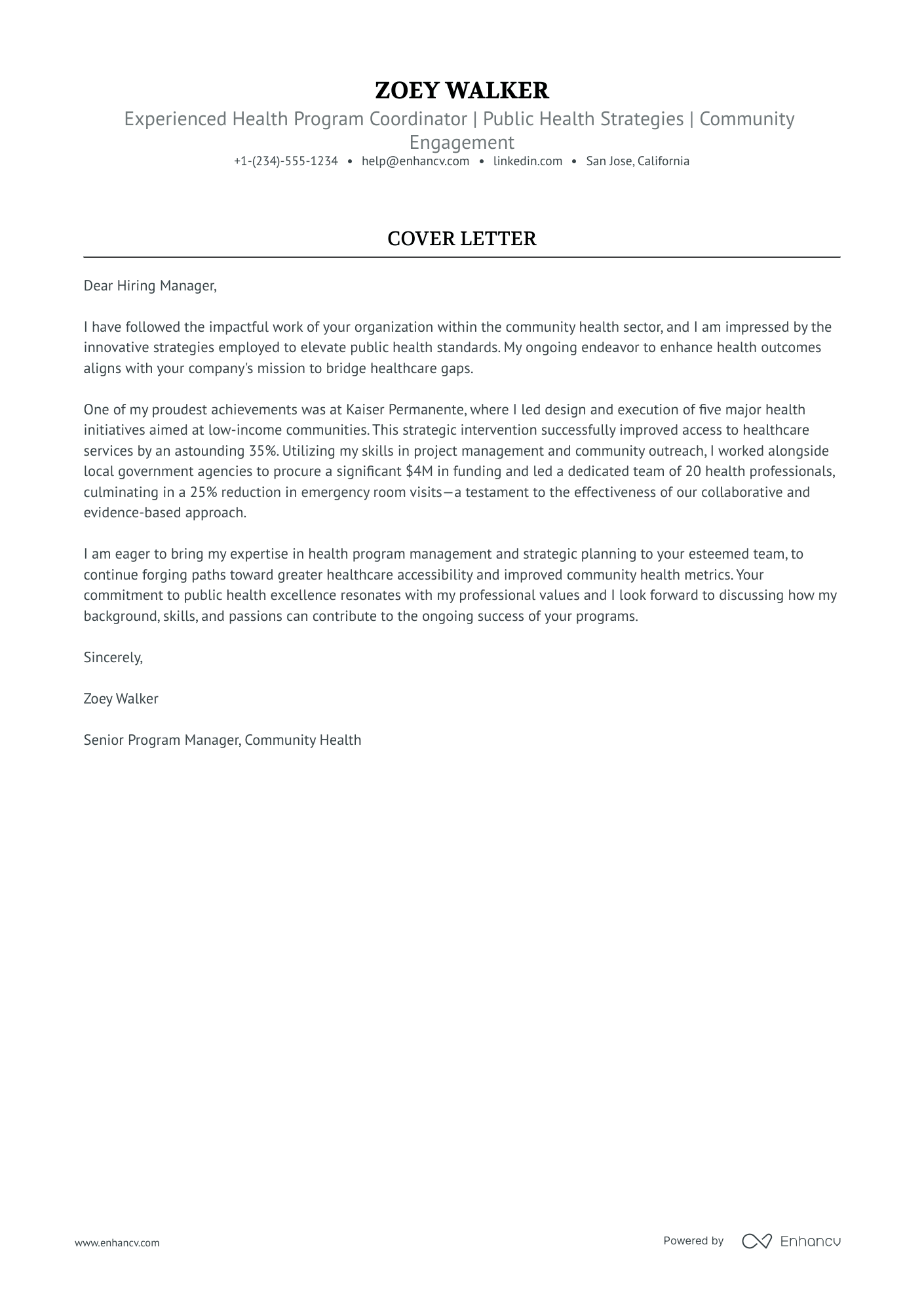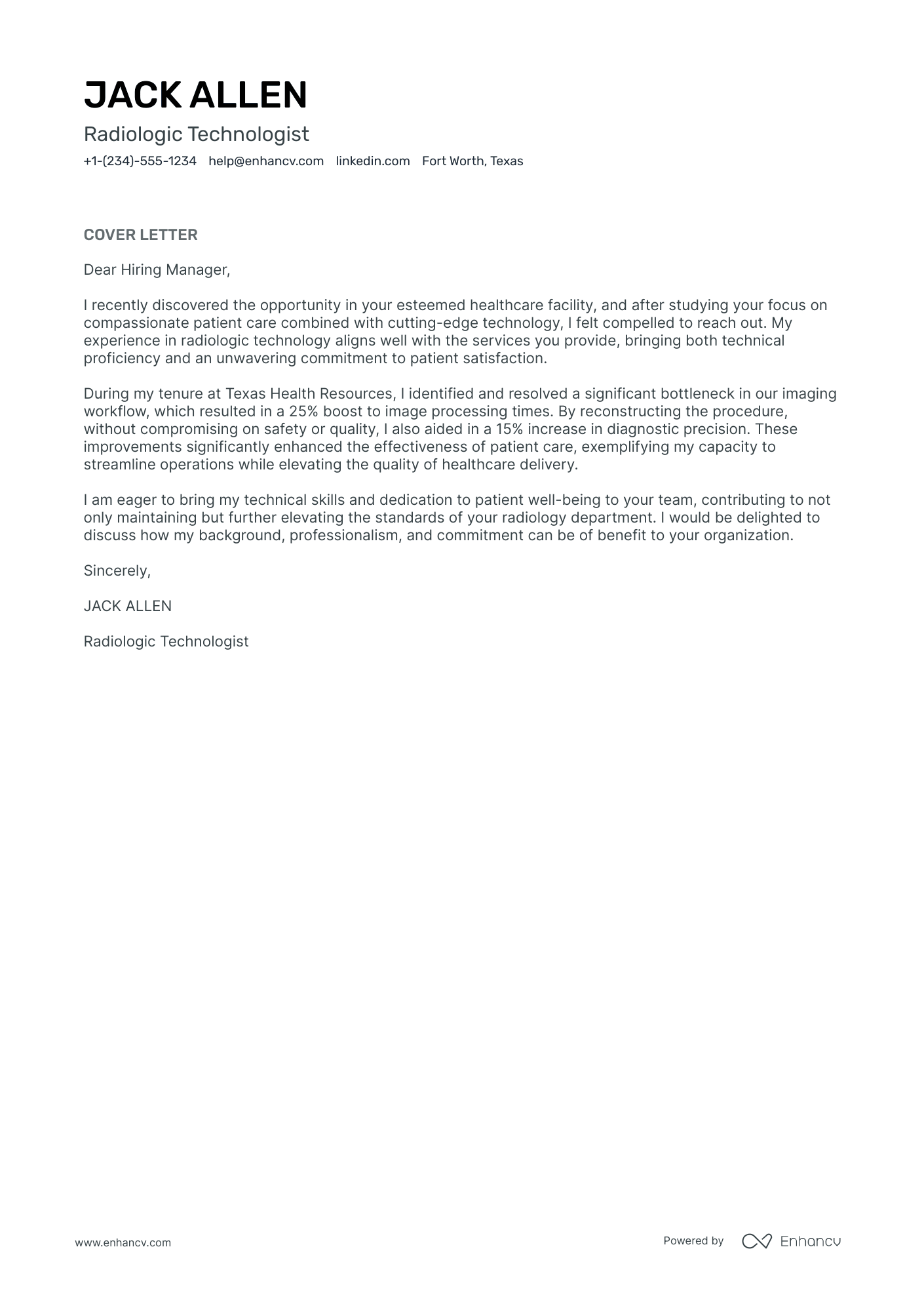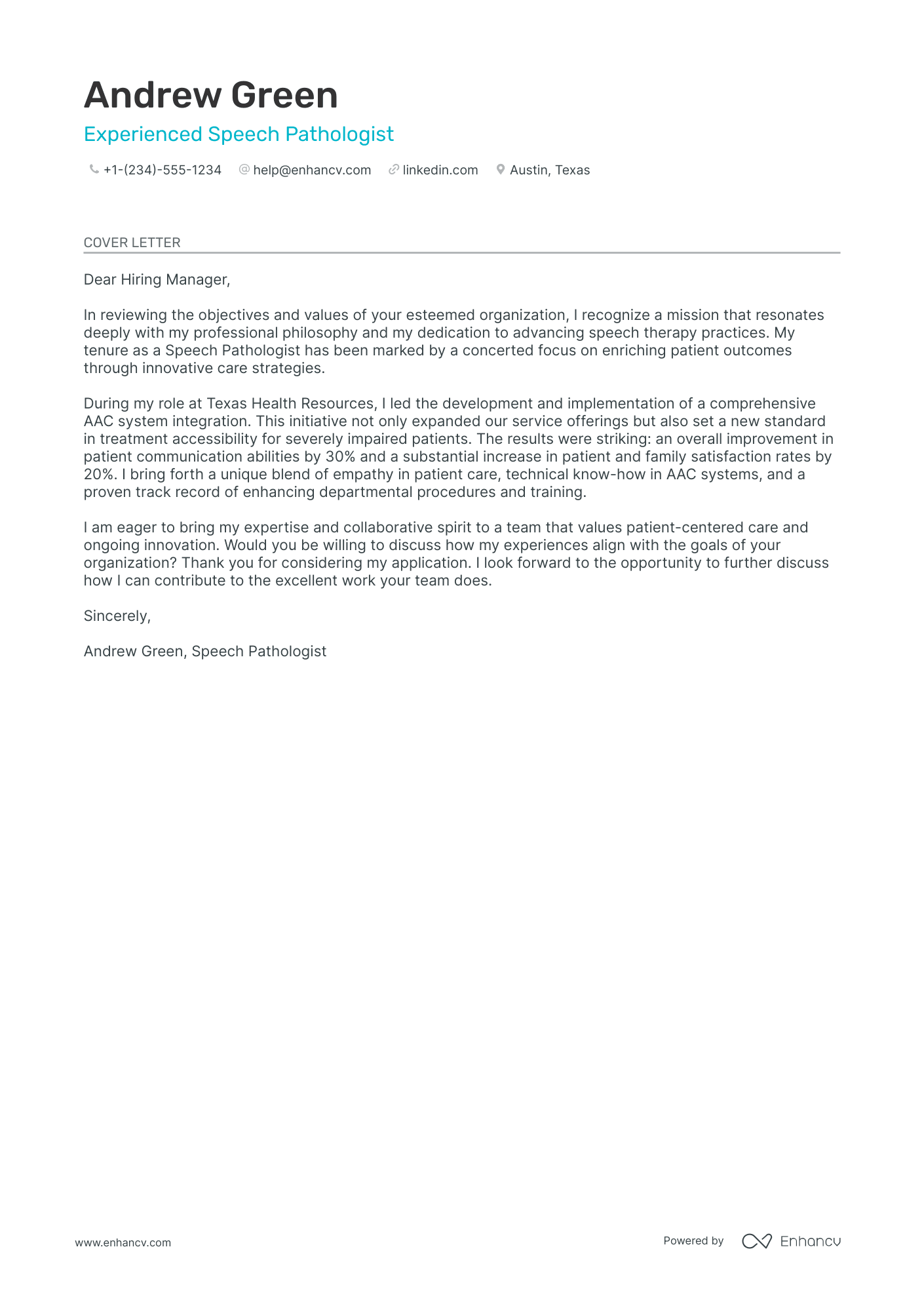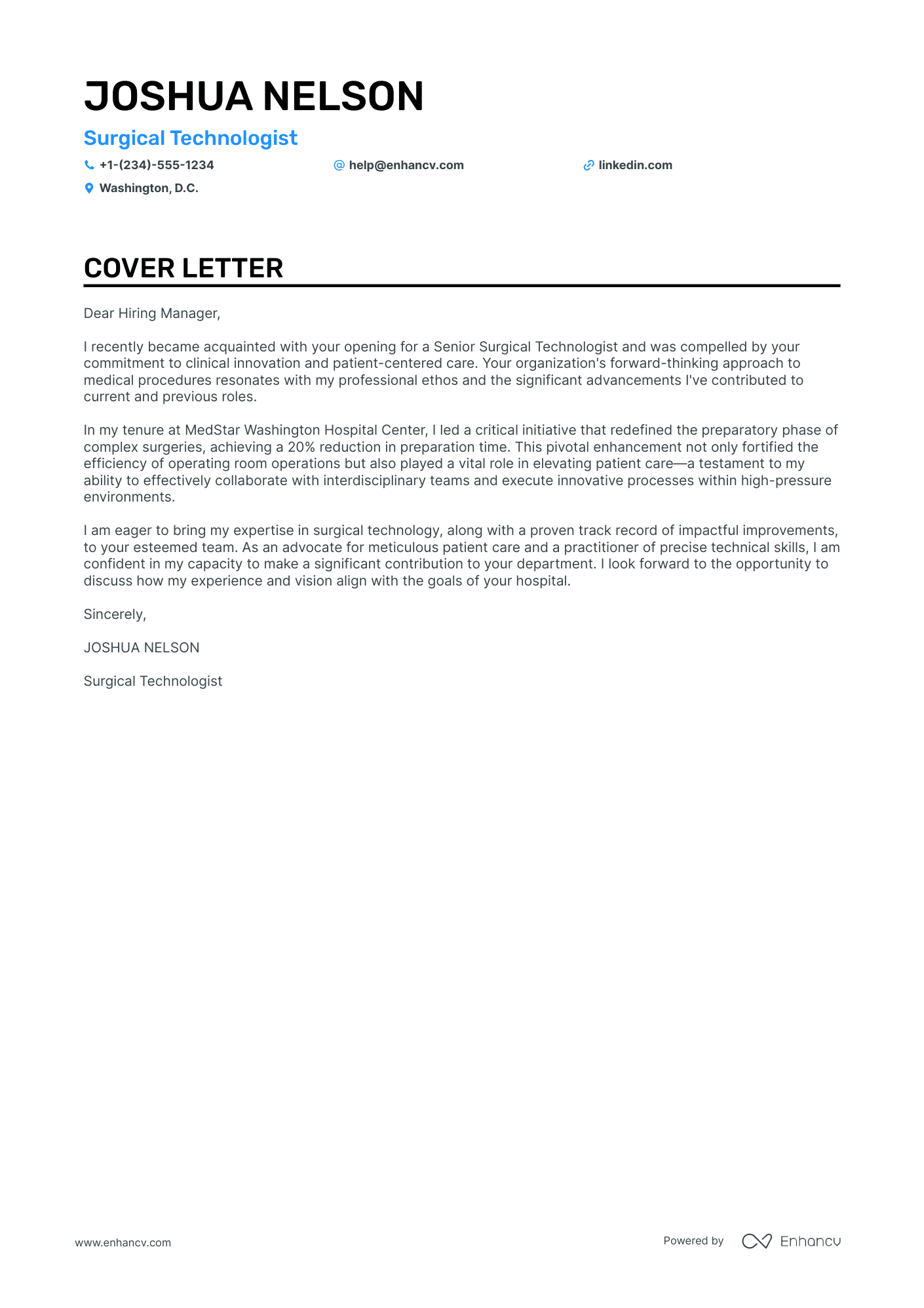Crafting a healthcare cover letter can often be a stumbling block in your job application process. Perhaps you've just discovered it's required, and the realization hits: it's not just an echo of your resume. Instead, it's your chance to weave a compelling narrative around your proudest professional triumph. Striking the delicate balance between formality and originality without tipping into clichés or exceeding the one-page limit poses a true challenge. Let's walk through how to surmount these hurdles and pen a cover letter that stands out.
- Including all the must-have paragraphs in your structure for an excellent first impression;
- Learning how to write individual sections from industry-leading cover letter examples;
- Selecting the best accomplishment to tell an interesting and authority-building professional story;
- Introducing your profile with personality, while meeting industry standards.
And, if you want to save some time, drag and drop your healthcare resume into Enhancv's AI, which will assess your profile and write your job-winning cover letter for you.
If the healthcare isn't exactly the one you're looking for we have a plethora of cover letter examples for jobs like this one:
Drop your resume here or choose a file.
PDF & DOCX only. Max 2MB file size.
Healthcare cover letter example
Joshua Nelson
Seattle, Washington
+1-(234)-555-1234
help@enhancv.com
- Personalization and Specific References: The opening sentence demonstrates familiarity with the company's work and achievements, signaling that the writer has researched the company and understands its mission, thereby creating a connection with the hiring manager.
- Demonstration of Relevant Experience: By detailing a successful direct mail campaign and showing tangible results, like the 20% spike in engagement, the writer exemplifies a track record of success in the field that is directly relevant to healthcare marketing.
- Connecting Past Work to Potential Contributions: The candidate smoothly transitions from past experiences to potential future contributions, implying that their skills and accomplishments can be beneficial to the hiring company’s future projects and goals.
- Call to Action: By expressing a desire to schedule an interview and delve deeper into how their experiences can align with the company’s goals, the writer encourages the hiring manager to move forward with the application process, demonstrating eagerness and initiative.
Five tips on formatting your healthcare cover letter
Do you want to make a good impression on recruiters and, at the same time, follow the best industry advice on writing your healthcare cover letter?
Make sure to include the following:
- Header and Salutation;
- Introductory paragraph;
- Body paragraph;
- Closing paragraph;
- Signature (this one is up to you).
Remember to use the same modern, simple font for your healthcare cover letter as you did for your resume (e.g. Lato, Rubik, etc.)
Ensure your healthcare cover letter is single-spaced and is wrapped around a one-inch margin, like in our cover letter templates.
Once completed, use our cover letter builder to export your healthcare cover letter in the best format to keep your information intact - PDF.
At the end of the day, your healthcare cover letter won't be assessed by the Applicant Tracker System (ATS) software, but by the recruiters. Your information should thus be legible, organized, and follow a structured logic.
Overwhelmed by cover letters? Our free cover letter generator lets you make one in seconds based on your resume.
The top sections on a healthcare cover letter
Header: It should include your contact information, the date, and the employer's contact information, to ensure the letter is properly addressed and professional.
Opening Greeting: This should address the hiring manager by name if possible, demonstrating that you have personalized the letter and are attentive to details.
Introduction: Your introduction should grab the recruiter's attention by mentioning your relevant healthcare experience or specialized qualifications, making you stand out as a candidate.
Body of the Letter: This section should detail your previous healthcare roles, specific accomplishments, and how you can apply your skills to solve problems unique to the healthcare industry the employer is facing.
Closing and Call to Action: Your closing should express your enthusiasm for the opportunity, invite further discussion, and include a polite request for an interview, showing initiative and eagerness to move forward in the application process.
Key qualities recruiters search for in a candidate’s cover letter
- Clinical competence and technical proficiency in relevant medical procedures: Ensures patient safety and the ability to provide high-quality care.
- Empathy and strong interpersonal skills: Facilitates better patient communication and care by understanding their needs and concerns.
- Teamwork and collaboration: Essential for working effectively with multi-disciplinary healthcare teams to provide comprehensive patient care.
- Adaptability and crisis management skills: Important for responding to rapidly changing clinical situations and emergencies in a healthcare setting.
- Knowledge of healthcare regulations and compliance: Critical for ensuring legal and ethical standards are met in clinical practice.
- Commitment to continuous learning and professional development: Necessary to stay updated with the latest medical knowledge and techniques, which improves patient outcomes.
Personalizing your healthcare cover letter salutation
Always aim to address the recruiter from the get-go of your healthcare cover letter.
Use:
- the friendly tone (e.g. "Dear Paul" or "Dear Caroline") - if you've previously chatted up with them on social media and are on a first-name basis;
- the formal tone (e.g. "Dear Ms. Gibbs" or "Dear Ms. Swift") - if you haven't had any previous conversation with them and have discovered the name of the recruiter on LinkedIn or the company website;
- the polite tone (e.g. "Dear Hiring Manager" or "Dear HR Team") - at all costs aim to avoid the "To whom it may concern" or "Dear Sir/Madam", as both greetings are very old-school and vague.
List of salutations you can use
- Dear Hiring Manager,
- Dear [Specific Department] Team,
- Dear [Recipient's Name],
- Esteemed Selection Committee,
- Respected Human Resources Director,
- Dear Dr. [Recipient's Last Name],
The healthcare cover letter introduction: focusing on your unique value, with a creative twist
You are not the only one wondering how to start your healthcare cover letter. Those first two sentences introduce your profile and should be memorable.
No pressure.
When beginning your healthcare cover letter, immediately point out the unique value of working with you. In other words, what you promise to bring to the role by using your past track record of success.
Start your healthcare cover letter with a creative twist by telling a joke or stating something relatable. Select this type of introduction only if it aligns with the company culture.
The middle or body of your healthcare cover letter body: a great instrument to tell a story
Now that you've set the right tone with the greeting and introduction of your healthcare cover letter, it's time to get down to business.
Hear us out, the body of your healthcare cover letter is the best storytelling instrument you have, in your job-hunting arsenal.
Writing the next three to six paragraphs, take the time to reassess the advert to discover job-crucial requirements.
Next, choose one accomplishment that covers those key skills and talents.
Use precisely that achievement to tell an exciting story of how you match the ideal candidate profile.
In the undertones of your story or healthcare cover letter body, hint at the difference you'd make and sell your application as the perfect one for the job.
Ending your healthcare cover letter: a closing paragraph with a promise
If you're thinking of finishing your healthcare cover letter with a "Sincerely yours" or "Thanks for the consideration," you need to read on.
End the final paragraph of your healthcare cover letter with a twist:
- a promise - of how you'd grow as a professional, part of the company, or improve organizational metrics;
- a call to action - prompt interviewers with some follow-up actions if they are interested in your profile.
A personalized ending would surely help you to stand out by being a memorable candidate.
The zero experience healthcare cover letter: shifting the focus to your unique value
Don't worry if you have no conventional professional experience. Within your whole experience, there's plenty more you can write about in your healthcare cover letter.
Take, for example, your biggest achievement or award - dedicate your cover letter body to describe it and the job-relevant skills you've learned.
Your professional ambitions could also take center stage. Describe what you plan on achieving in the next five to ten years and the efforts you're making towards your dreams.
Key takeaways
Within this Enhancv guide, we've provided you with plenty of advice and inspiration on writing your healthcare cover letter:
- Always make sure your healthcare cover letter is tailored to the role you're applying for to make a good impression on recruiters;
- In your healthcare cover letter include a header (with your name, the role you're applying for, date, and contact details) and an introduction of up to two sentences that highlight your key accomplishment or why you'd fit the role;
- Focus your healthcare cover letter body on one sole achievement through your career and all the valuable lessons, skills, and know-how you've learned (that are relevant to the role);
- Ensure your healthcare cover letter closing statement isn't generic and includes either a call to action or a promise;
- If you lack professional experience, shift recruiters' focus to a relevant achievement (thanks to your academic or versatile experience) or toward your dreams and goals for professional growth.
Healthcare cover letter examples
By Role
